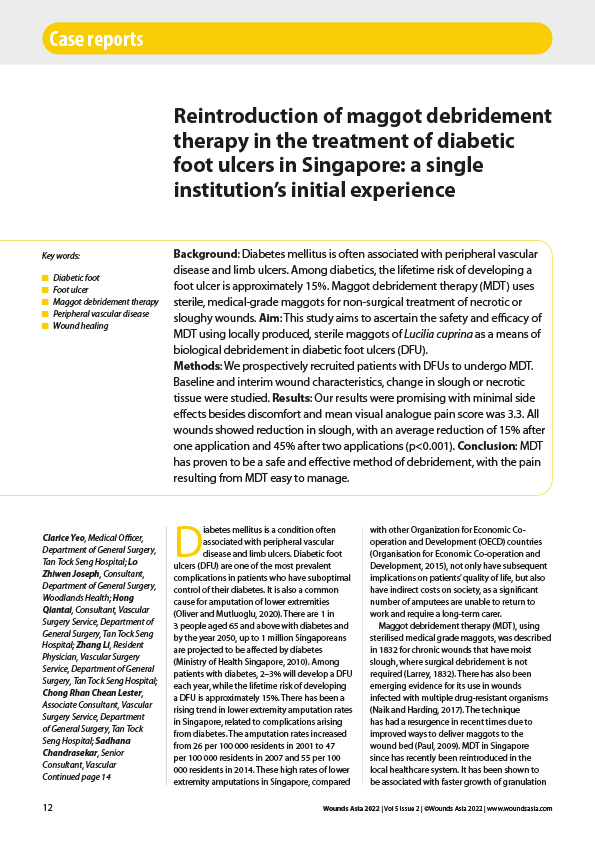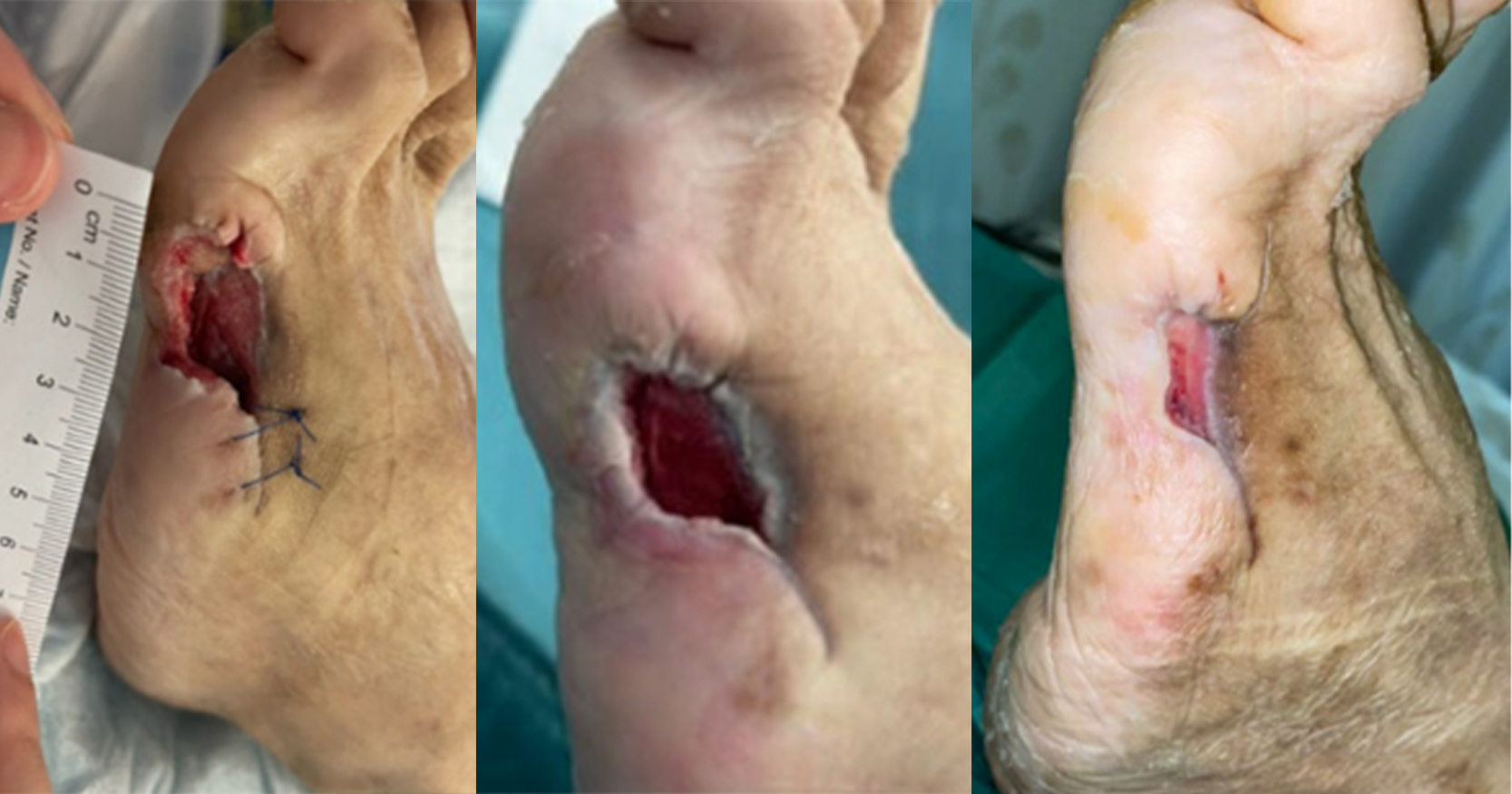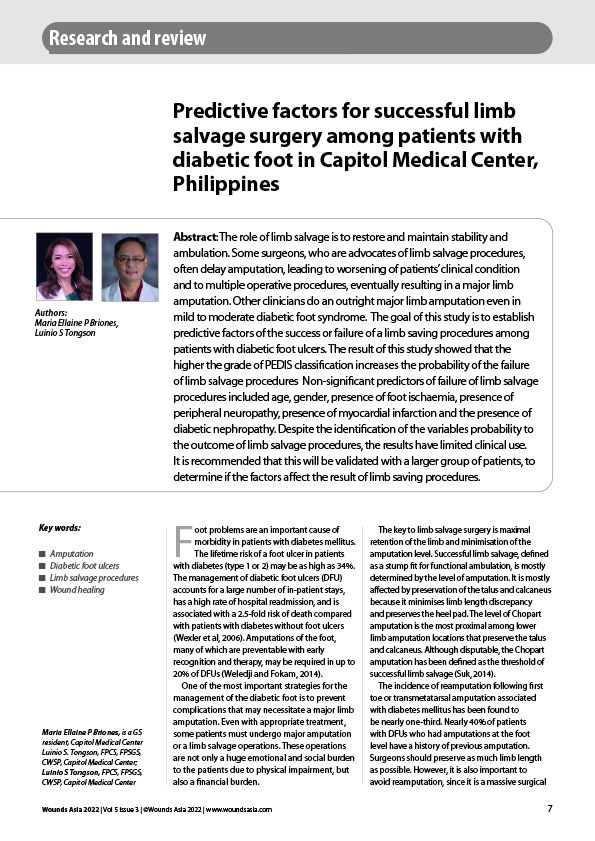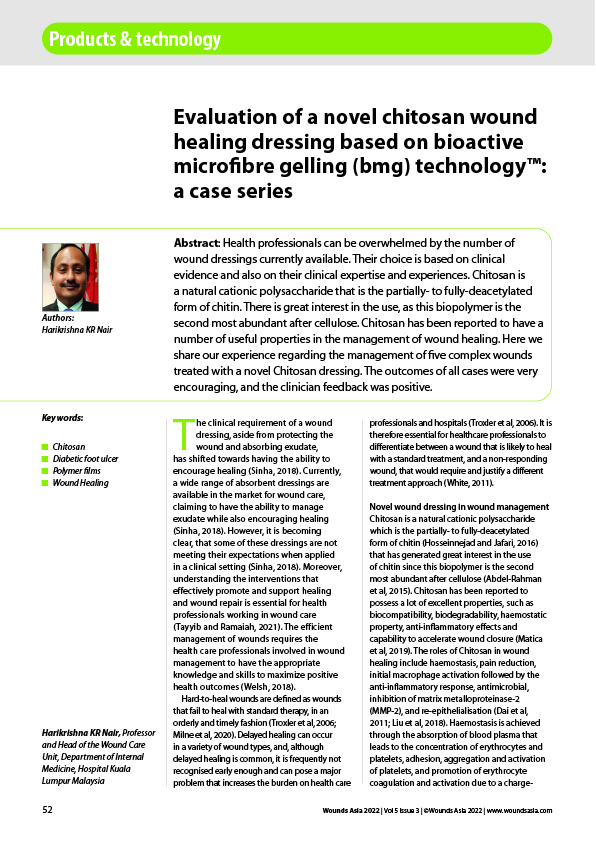Background: Diabetes mellitus is often associated with peripheral vascular disease and limb ulcers. Among diabetics, the lifetime risk of developing a foot ulcer is approximately 15%. Maggot debridement therapy (MDT) uses sterile, medical-grade maggots for non-surgical treatment of necrotic or sloughy wounds. Aim: This study aims to ascertain the safety and efficacy of MDT using locally produced, sterile maggots of Lucilia cuprina as a means of biological debridement in diabetic foot ulcers (DFU). Methods: We prospectively recruited patients with DFUs to undergo MDT. Baseline and interim wound characteristics, change in slough or necrotic tissue were studied. Results: Our results were promising with minimal side effects besides discomfort and mean visual analogue pain score was 3.3. All wounds showed reduction in slough, with an average reduction of 15% after one application and 45% after two applications (p<0.001). Conclusion: MDT has proven to be a safe and effective method of debridement, with the pain resulting from MDT easy to manage.








